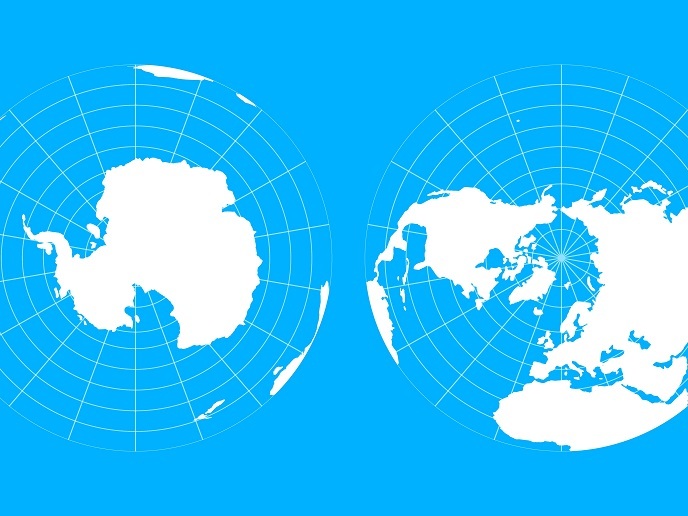Shaping the future of polar research
Climate change and human activities are dramatically altering the polar regions. Yet there’s much we still don’t know, according to Anneli Strobel, project manager of EU-PolarNet 2: “Despite indications that we may have already reached a tipping point, our knowledge about polar environmental systems remains too incomplete to forecast the scale and pace of change.” Building on predecessor project EU-PolarNet, EU-PolarNet 2 is focused on research coordination, prioritisation and optimisation, complemented by stakeholder involvement, leading to policy advice and the establishment of a European Polar Coordination Office (EPCO). The project involved all the EU Member States and Associated Countries with polar research programmes, and is mandated to coordinate the EU Polar Cluster, a network of EU-funded Arctic and Antarctic research projects.
Capturing the particularity of the poles
According to Strobel, there is now less sea ice in the Antarctic than at any time since satellite observation began. The ice sheet is losing mass, causing sea level rise, alongside atmospheric and oceanic changes. These have economic and geopolitical impacts, such as new Arctic shipping lanes and increased resource extraction, affecting local communities and Indigenous peoples. To help identify and co-design critical research priorities, aided by a Polar Expert Group, the project engaged with a range of stakeholders, including through transdisciplinary workshops with stakeholders and rightsholders such as local fishers, reindeer herders and hunters. One result was a call for increased scientific knowledge on the consequences of changing polar species distributions – impacting food supplies and habitats, alongside animal and human health – to inform risk assessments and policymaking. “To develop adaptation strategies we have to ensure that the voices of industries and local communities are heard in international discussions and negotiations about conservation and sustainable management,” adds Strobel. The outcomes of these consultations will also contribute to the multi-year planning process for the Fourth International Conference on Arctic Research Planning.
One-stop shop for polar research
A prominent collaboration tool developed by the project is the registration-based Catalyst Platform which collates information about European polar community resources, news, events, research groups and jobs. Key features are the discussion forum and a moderated best practice forum. The coordination platform will be complemented by a variety of additional tools under development, such as webinars, newsletters and a stakeholder tool. A catalogue of large-scale and national polar programmes has been published, alongside a directory of European polar research funding opportunities. A white paper also contains specific recommendations for accelerating the development of a sustainable, fully integrated polar observing system. “All these activities will help policymakers join the dots about polar region changes. Greater appreciation of the science, and social consequences, of polar changes will help evidence-based decision-making. Our overview of the funding landscape and diversity of programmes available, will target resources more effectively,” notes Strobel.
Meeting global commitments and ensuring sustainability
While the project team participates in, and represents, polar research in the All-Atlantic Ocean Research and Innovation Alliance, its work has already fed into the Arctic and Antarctic action plans of the United Nations Decade of Ocean Science for Sustainable Development. Meanwhile it continues supporting other international EU commitments. Perhaps EU-PolarNet 2’s most impactful legacy will be a permanent EPCO. “Now that the European Polar Board has agreed to host, and funding options are under discussion, we aim to open in early 2025,” says Strobel. Core activities will include: EU Polar Cluster coordination; polar observation coordination; cooperation with national funding agencies and research programmes, alongside continued Catalyst Platform management.
Keywords
EU-PolarNet 2, polar, ice, climate change, Indigenous, Antarctic, Arctic, research

